Liz Truss's Brexit credentials yet to be fully tested
- Published
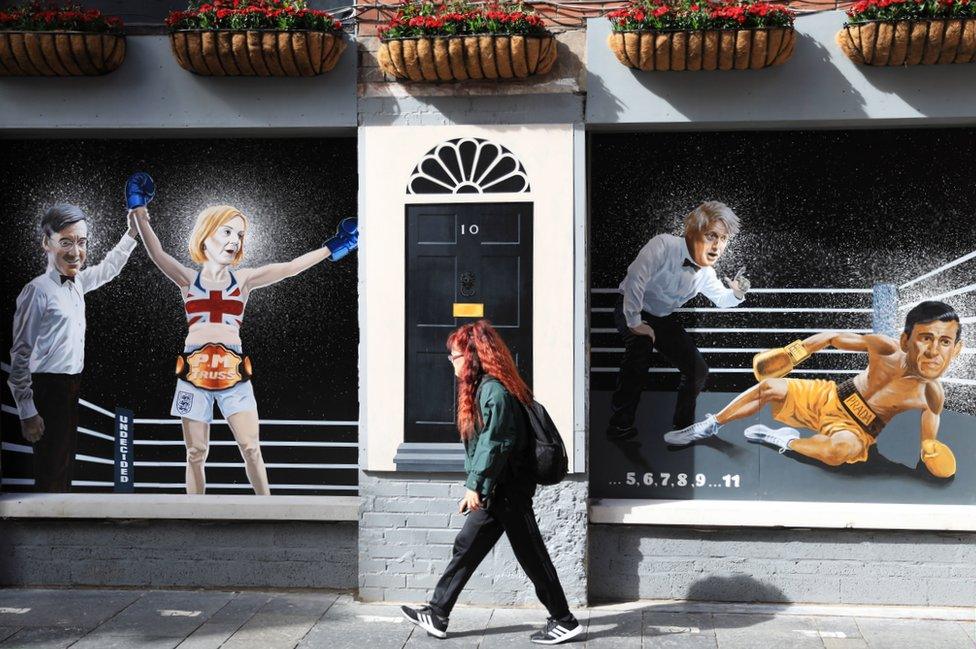
A mural on a Belfast street depicts Liz Truss as the victor in the "boxing match" that was the Tory leadership race
Controversially Liz Truss could not decide if French President Emanuel Macron was a friend or a foe.
The jury, she said, was still out.
The same can be said of the new prime minister when it comes to Northern Ireland.
Her path to power, like her predecessor, is littered with promises.
It is being reported that there were 149 across the 40 hours of hustings, stretched over 55 days.
But pledges made in pursuit of votes for high office often have a short shelf-life.
It is worth remembering these were promises made to Tories, not the wider electorate in a manifesto.
So the jury hearing the Truss case hasn't even been sworn in.
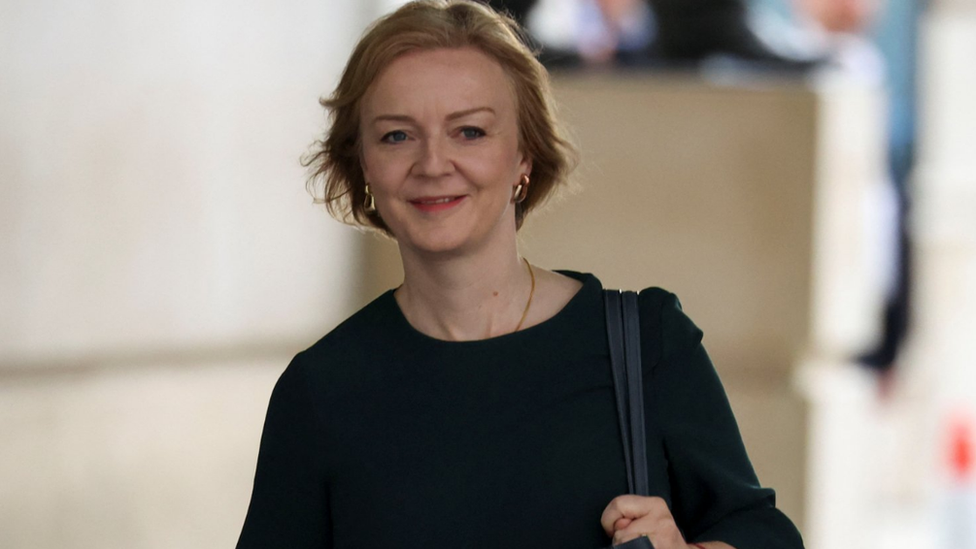
Liz Truss will have a number of urgent items, including the political situation in Northern Ireland, in her in-tray
But will a return to political stability in London this week help to end the instability at Stormont?
That depends on the DUP.
Although endorsed unofficially by the DUP, Liz Truss's Brexit and unionist credentials have yet to be fully tested.
After all, she did vote to remain in the EU before becoming a Brexit cheerleader.
And in her Liberal Democrat supporting days she argued to ditch the monarchy.
Like the man she replaced, her political DNA is hard to read.
No wonder DUP leader Sir Jeffrey Donaldson says he will judge the new prime minister on her actions and not her words.
He will want to ensure the Northern Ireland Protocol legislation Liz Truss set in motion as foreign secretary is more than just a bargaining tactic in negotiations with the EU.
The bill is due before the House of Lords next month before returning to the Commons.
DUP's demands
Sir Jeffrey is demanding "decisive" intervention on the protocol before marching his assembly members back into Stormont.
But he has yet to fully define what decisive action looks like.
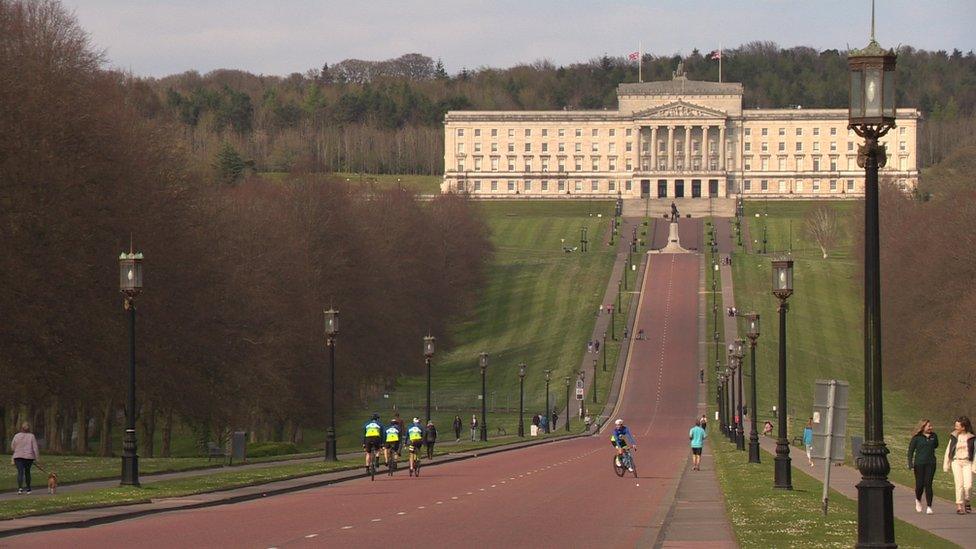
The DUP says it will not return to Stormont until the UK government takes action on the Northern Ireland Protocol
Could it be a pledge from the new prime minister to prevent the Lords from frustrating the passage of the bill?
Reports last week suggest those on the red benches planning to dismantle the legislation have already met to work out a strategy.
Although peers don't have the power to alter the final bill they can delay it.
Before being ousted as prime minister, Boris Johnson had pledged to use the Parliament Act to ensure the bill would pass into law by next June regardless of what happens in the Lords chamber.
Might Liz Truss offer to do the same and would that be enough for the DUP to support the election of a speaker, paving the way for a return of the assembly?
The executive the DUP will hold as a bargaining chip to play at another time.
Or might they demand more?
Perhaps triggering Article 16 to suspend parts of the Northern Ireland Protocol will be the price the DUP will set before returning to Stormont.
That option has been refloated in recent weeks by Team Truss much to the frustration of the EU.
Triggering Article 16 would be an easier sell to DUP supporters as "decisive action" but what will the new prime minister demand in return?
Perhaps the full return of a power-sharing executive, which is a card the DUP will be reluctant to play.
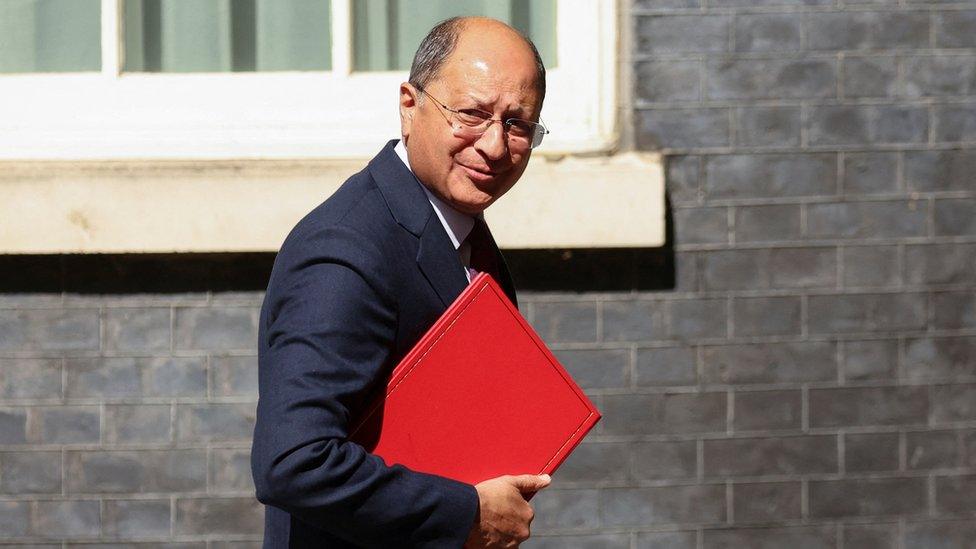
Northern Ireland Secretary Shailesh Vara has warned the DUP of the consequences of not returning to Stormont
Triggering Article 16 could also jeopardise any notion of a fresh start in talks with Brussels.
But history tells us being able to hover a finger over the Article 16 trigger without pulling it is perhaps a more useful tool for the UK government.
Call an election
Over the weekend both the EU and Dublin urged the new prime minister to make a fresh attempt to break the protocol deadlock.
At the same gathering of the British-Irish Association in Oxford, Northern Ireland Secretary Shailesh Vara warned the DUP of the consequences of not returning to the executive.
He insisted he will call an election at the end of October as he is legally obliged to do if an executive is not in place.
That followed an earlier warning from Northern Ireland Office Minister Conor Burns that families would loose out on vital energy bill support if the DUP failed to re-engage.
In truth, both warnings will have little or no impact on DUP thinking.
Armed with a strong mandate from the assembly election and support in the polls, the party insist it is under no pressure to act.
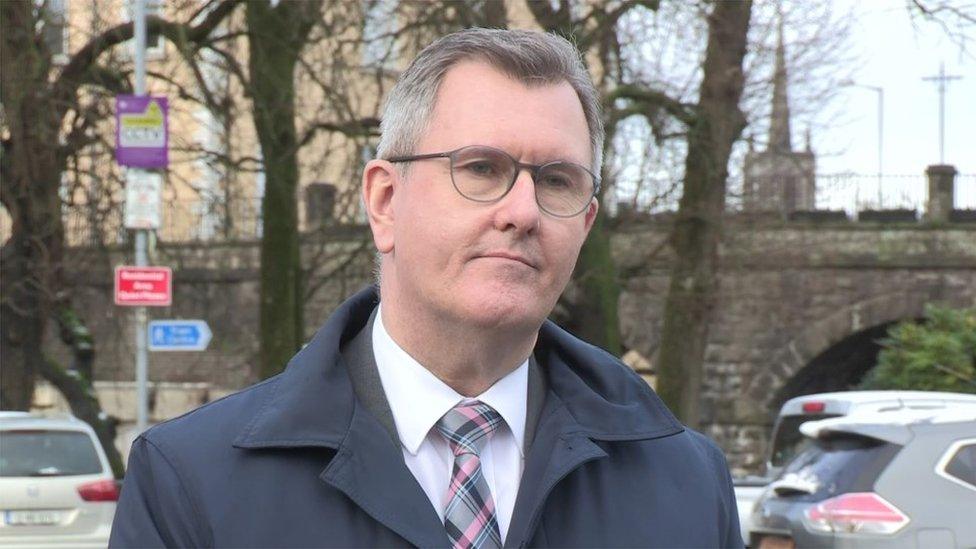
Sir Jeffrey Donaldson says he will judge the new prime minister on her actions and not her words
But the DUP will have already mapped out its course, which will likely be revealed at its party conference next month which falls on a telling date.
It will come just days after the Tory conference at the start of October in Birmingham and days before the Lords begin scrutinising the protocol bill.
That could be the moment when in his key note address, Sir Jeffrey Donaldson will signal his party's return to the Assembly through supporting the election of a speaker.
Heal divided party
That would be a welcome boost for the new prime minister, fresh from her conference, and could act as a deterrent to peers plotting to disrupt the protocol bill who could be accused of risking political progress.
Or if the DUP is still waiting for decisive action on the protocol, Sir Jeffrey could use his speech to spell out his party's next act of defiance.
But by far the biggest challenge facing the DUP will be keeping the protocol on the prime minister's radar.
Facing into an unprecedented economic storm with inflation soaring and an energy crisis deepening by the day, Liz Truss's focus will be elsewhere.
She also has a deeply divided party to heal after a bruising leadership contest.
That task will begin with her cabinet selections this week.
Key interest for Belfast, Dublin and Brussels will be who takes over from Liz Truss as the new lead in the protocol negotiations.
Whoever gets the job will have to decide who they want to keep as friends or foes.
- Published5 September 2022
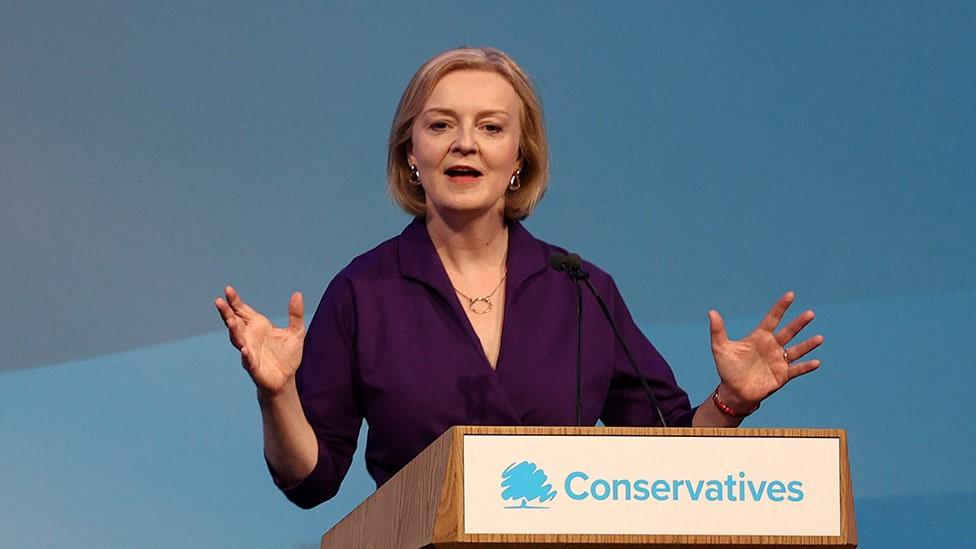
- Published2 September 2022
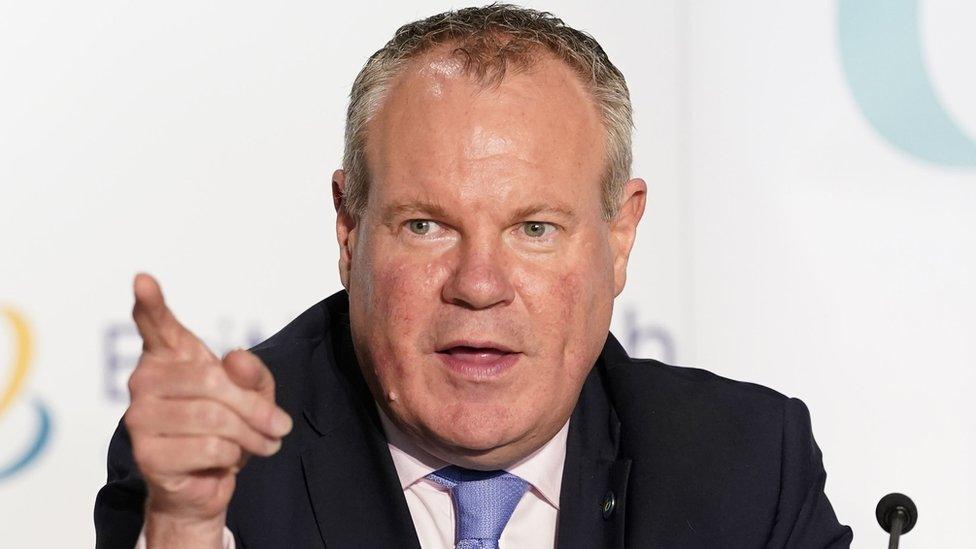
- Published2 February 2024

- Published17 May 2022

